If you’re looking for a new job as a bookkeeper and need to create a resume that will help you stand out from other applicants, this article is for you. Whether you’re switching industries or want to update your CV, crafting an effective resume is challenging. However, with the right mix of insider tips and examples, it doesn’t have to be as difficult as you think. When creating your resume, it can be easy to focus on the technical aspects of each document rather than the message it conveys. After all, your resume should demonstrate why you are the best candidate for the job and why you would be an asset to their organization above anyone else applying. Creating this document should be approached with that in mind so that hiring managers see what sets you apart from other applicants. This article explores how to create a fantastic bookkeeper resume that will stand out from the other applicants and get you interviews faster than ever before.
Bookkeeper Resume Example

Download This Bookkeeper Resume as PDF
Accountant Resume Example
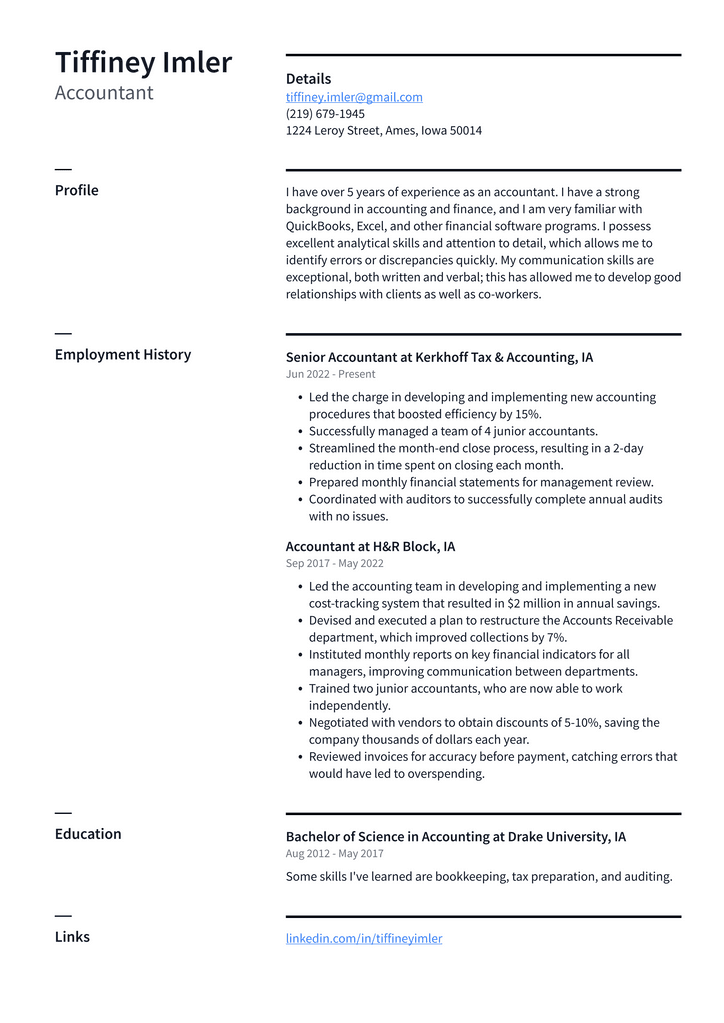
Download This Accountant Resume as PDF
Controller Resume Example
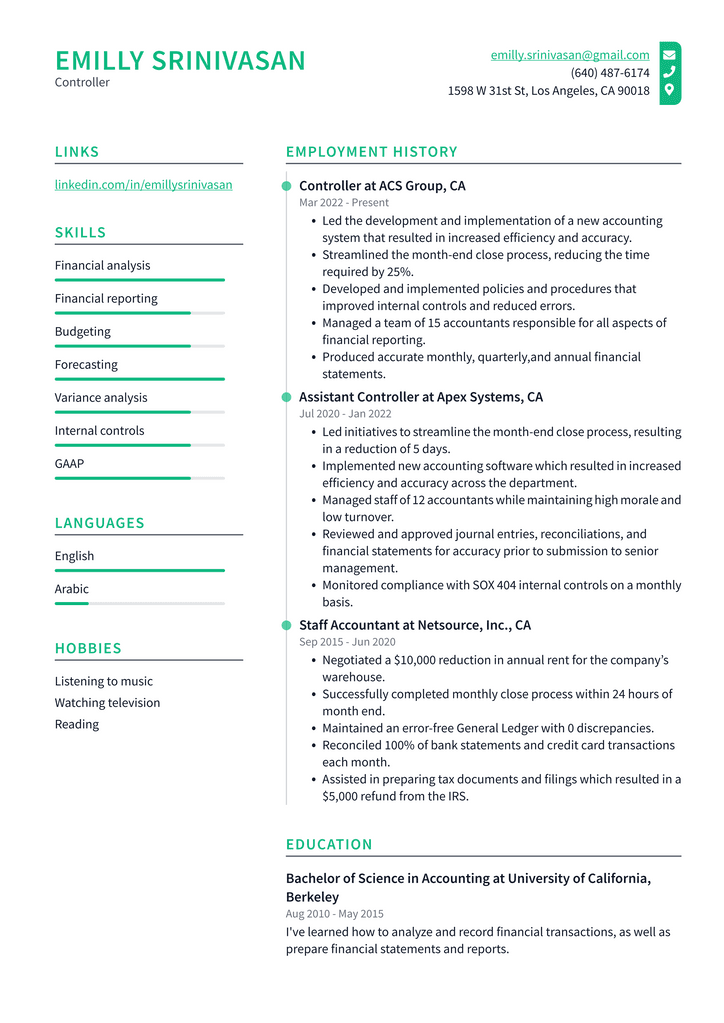
Download This Controller Resume as PDF
Finance Manager Resume Example
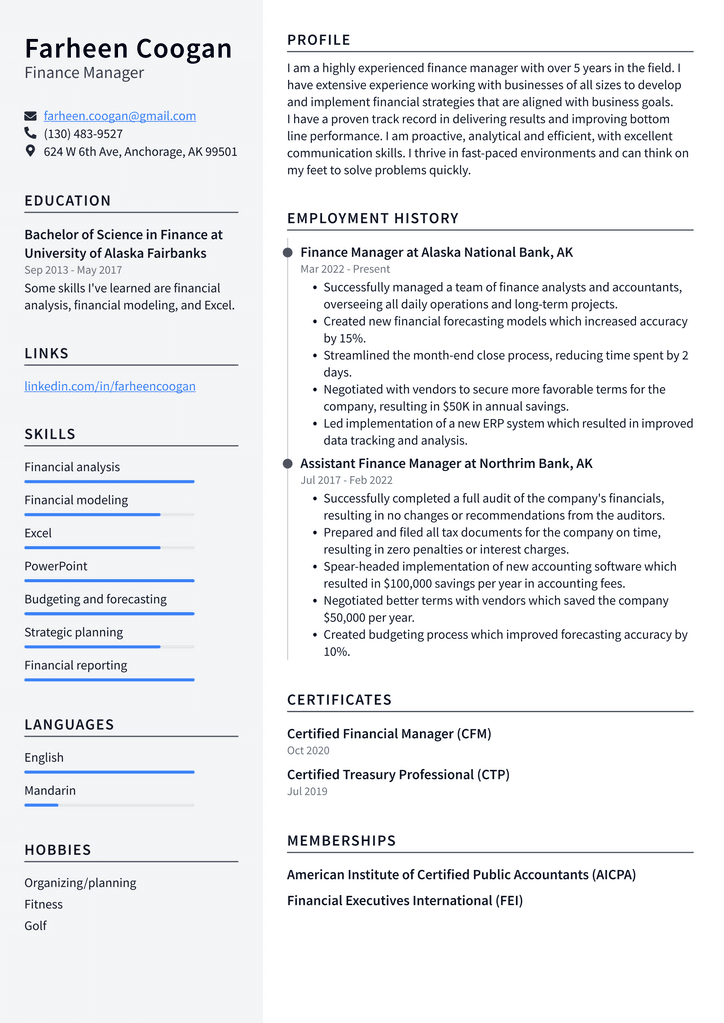
Download This Finance Manager Resume as PDF
Office Manager Resume Example
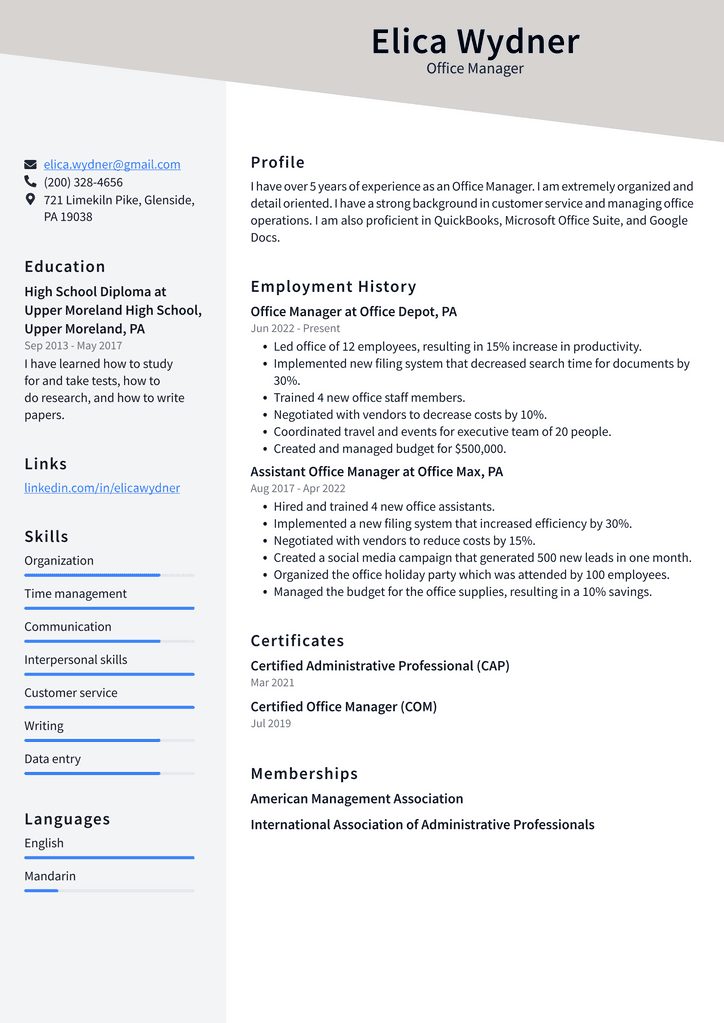
Download This Office Manager Resume as PDF
Budget Analyst Resume Example
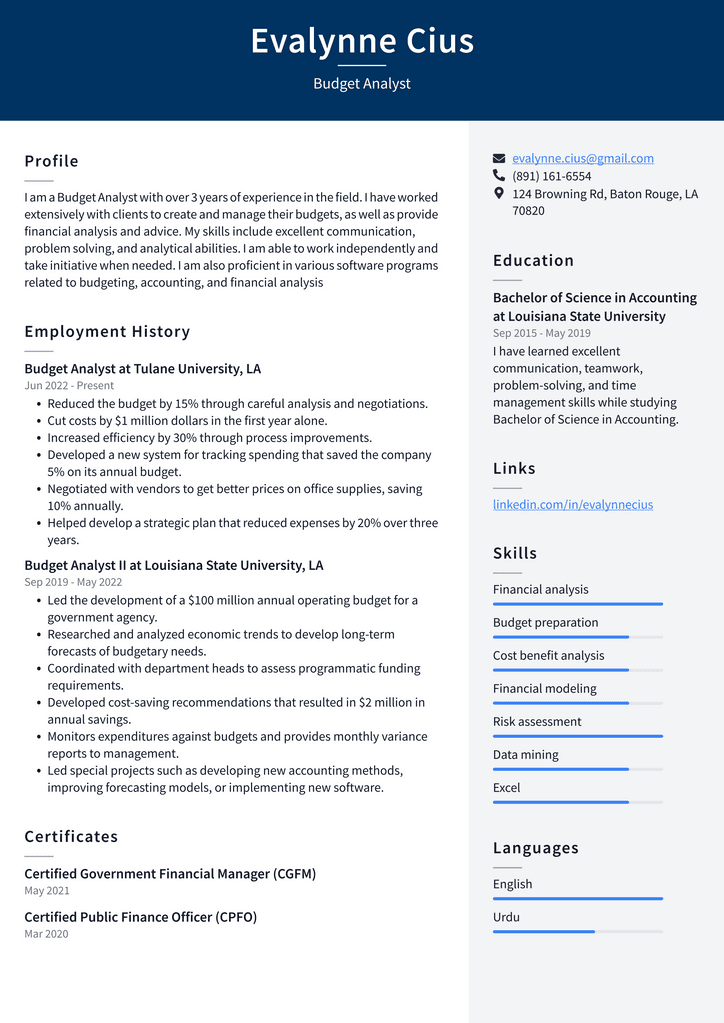
Download This Budget Analyst Resume as PDF
Treasurer Resume Example
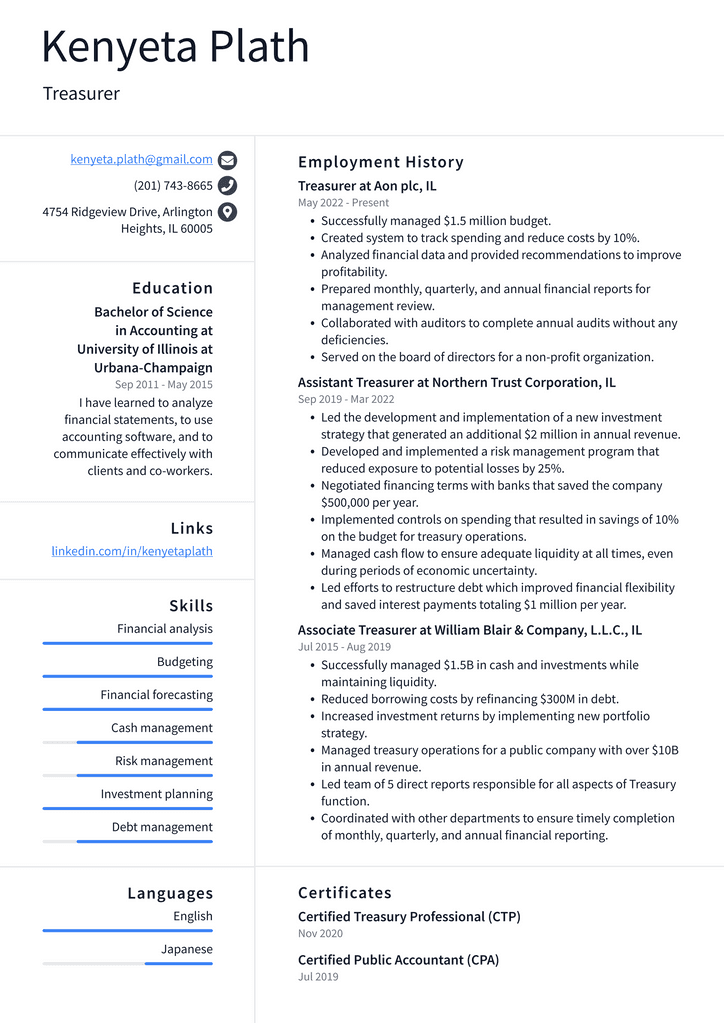
Download This Treasurer Resume as PDF
Understand the requirements of your target job
Your first step before creating your resume is understanding the job that you’re applying for. If you’re targeting a specific job or industry, research what skills and experience hiring managers are looking for in potential candidates. For example, there are many different types of companies that hire bookkeepers. When creating your resume, you’ll want to make sure that it appeals to each of those companies. For example, financial auditors assure an organization’s stakeholders that the financial information is accurate and reliable. They may also assist with the organization’s compliance with financial reporting regulations. If you’re targeting this type of job, hiring managers will want to see experience in accounting and auditing. From your resume, they should be able to quickly identify your background and where you’ve applied your skills.
Use action verbs to showcase your experience
Every industry has its own set of action verbs and words used to communicate the skill set you bring to your job. When creating your resume, you’ll want to ensure that you’re using these words to demonstrate your experience. Doing so will make it easier for hiring managers to quickly identify your skills and determine whether or not you are the best applicant for the job. To find the appropriate action verbs for your resume, you can reference a resume action verbs list or download a free resume checklist that lists common verbs used in summaries. For example, if you were applying for an accounting job, you would want to use words demonstrating your ability to perform financial calculations and forecast future costs. Likewise, if you were applying for an auditing job, you would like to use words demonstrating your ability to use analytical techniques to ensure accuracy and identify potential risks.
Emphasize your most relevant skills
You may have experience in areas you would like to showcase on your resume, but they aren’t relevant to the job you are applying for. In this case, you don’t want to use these skills to demonstrate your experience. However, there are many ways to hint at your other skills without using them to fill out your resume. To list all of your skills on your resume would be unnecessary and would take up valuable space that could be used to showcase your most relevant skills. Instead of listing every craft you possess, you can use bullets to list only the skills most relevant to the job you are applying for. For example, if you’re applying for an accounting job, you would want to use the word “accounting” in your resume. However, if you’re applying for an auditing job, you would like to avoid the word “accounting” and instead use “financial analysis” or “auditing.”
Sum up your professional experience
If you’ve worked in a previous job, you should list your previous experience on your resume. However, you want to ensure that you are summarizing your experience instead of listing every detail. If you list every detail, your resume will be long and cluttered, making it difficult for hiring managers to skim your CV. So instead, you want to summarize your experience by listing your title, the company you worked for, and the years you spent in your position. You can also add additional details such as the number of employees you managed or the number of customers you serviced. For example, if you worked as a bookkeeper for a small business in your hometown, you would want to list the title “bookkeeper,” the company “Bob’s Bike Shop,” and the number of years “3 years”. You can also add details such as “managed two employees” or “100 customers” to give hiring managers a better idea of your challenges in your role.
Don’t forget to include your contact information
Finally, you want to include the appropriate contact information on your resume. This includes your name, address, telephone number, and email address. With the advent of new technologies, employers increasingly prefer to communicate via email. In fact, according to a survey by Gallup, 53% of respondents reported that they prefer communication via email compared with 41% who prefer communicating by telephone. Therefore, including your email address on your resume will make it easier for hiring managers to contact you. And if you’re applying for a job requiring a high level of confidentiality, such as in the government or healthcare industry, you should also include your phone number.